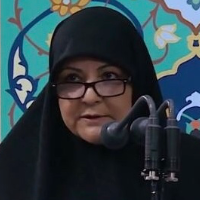Gender Analysis of Life after Divorce: a Qualitative Study
Author(s):
Abstract:
The increasing trend of divorce during recent decade and consequently a rise in the number of men and women who have experienced divorce, clarifies the importance of paying attention to post-divorce life. However the study of how divorced subjects deal with life after divorce and also their perception, especially with a gender approach has been a neglected area in the Iranian sociology. Therefore the present research attempts to adopt a quantitative methodology and to apply in depth semi structured interviews with 36 divorced men and women in Tehran to discover the perception of subjects of different aspects of life after divorce and gender differences, in the way people deal with the situation.The results show that with divorce several changes develop in various aspects of life of actors. Therefore actors should take new interaction policies in the areas of emotional, sexual, economic, psychological, relational, social, parenting, and home management in their lives. Also, gender culture, gender inequality in access to a variety of investments, legal distinctions, differences in habits, gender roles, distinctive sense of community of men and women, lead in various interactions and deal differently with divorce when it happens. The results indicate that, women compared to men experience different aftermaths of divorce and, by and large, they face with doubled challenges.
Keywords:
Language:
Persian
Published:
Women in Development and Politics, Volume:10 Issue: 3, 2013
Page:
5
https://magiran.com/p1088521
مقالات دیگری از این نویسنده (گان)
-
"In the Presence of the Other": Mobile Phone Technology and Insecurity in Marital Life; An Iranian Narrative Unfolding Gender Differences
Elaheh Shabani Afarani *, Masoud Kianpour,
Journal of Cyberspace Studies, Summer-Autumn 2024 -
Models of political education in women politicians and its impact on political competition at the macro levels (the government board and the Islamic Council).
Seyed Ameneh Mir-Khoshkhoo *, Soheila Sadeghi Fasaei
Journal of Political science Association,



